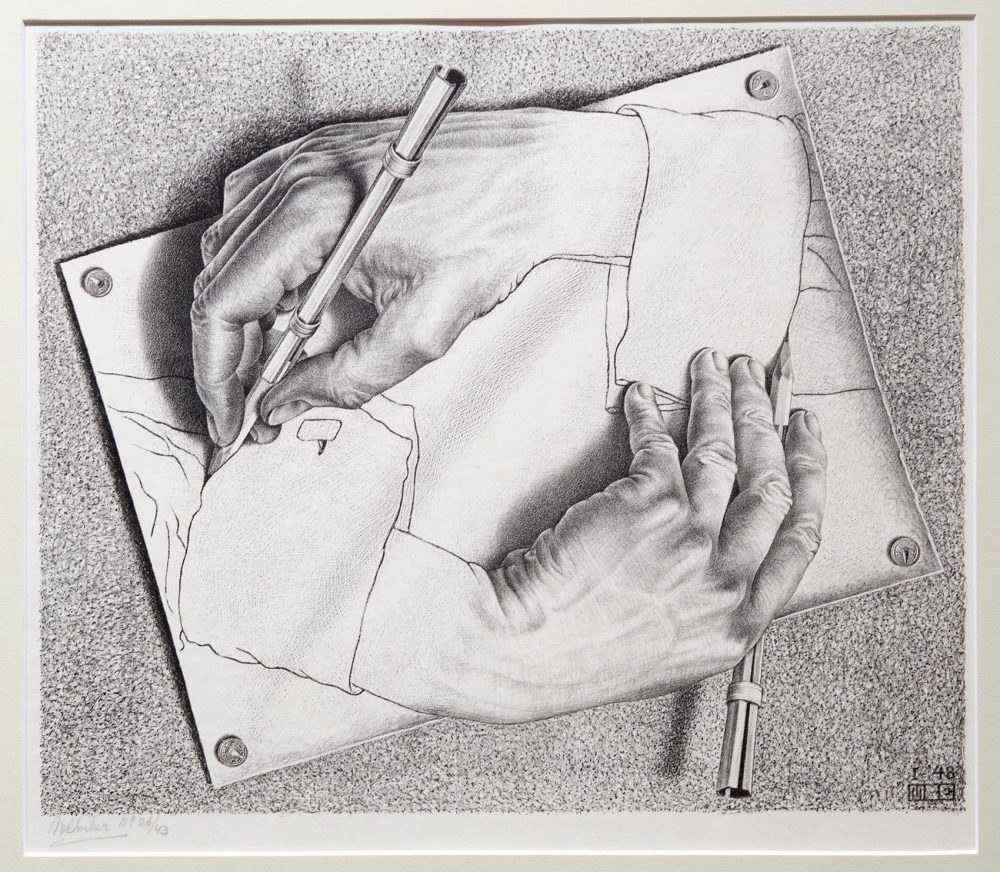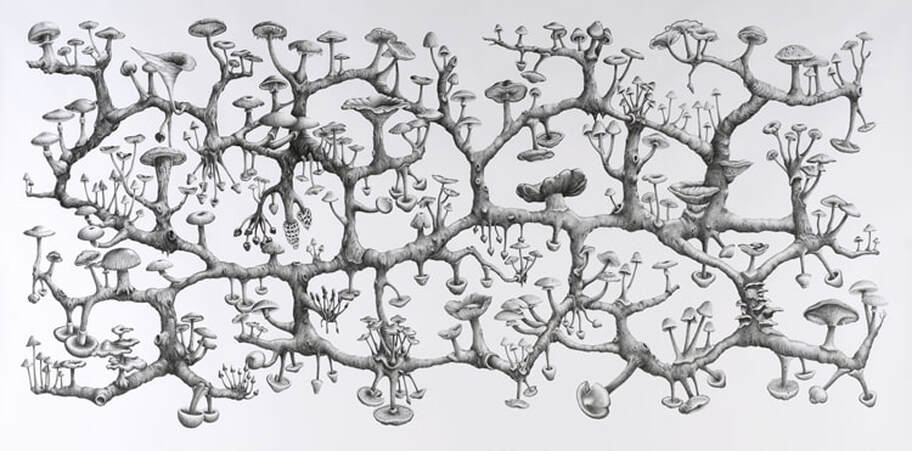- About
- Introduction
-
Browse the book
-
All the pages alphabetically
>
- A >
- B >
- C >
- D >
- E >
- F >
- G >
- H >
- I >
- L >
-
M
>
- Main theories of power
- Making an effort is a prerequisite of using power
- Marxism and the meaning of power
- "May" power
- Meanings of power that are not directly related to social power
- Micropower: Individual power
- Mindfulness
- Media and Digital Literacy as Forms of Individual Power
- (Mis)understanding of power in media texts
- Money and Power
- My synesthetic perception of "power"
- N >
- P >
- R >
- S >
- T >
- U >
- V >
- W >
- Completed pages
-
All the pages alphabetically
>
- Author
For the most updated introduction to this project, read my essay on Medium or listen to the recording of this essay on Spotify.
I created this website to explore power. Why is this exploration necessary?
Understanding power can help us live in a better society.
1. Power is an aspect of all human relationships.
2. As people are looking for ways to improve society, the issue of power inevitably comes up. It is hidden in such questions as, "Whose fault is this problem?", "Who is supposed to fix it?", "Who gets in the way of making things better?"
3. Power is often seen as a simple binary: some people always have it while others do not. This assumption obscures the complexity of social relationships. By relying on this simplified view, we risk creating new problems as we are trying to eliminate old ones.
2. As people are looking for ways to improve society, the issue of power inevitably comes up. It is hidden in such questions as, "Whose fault is this problem?", "Who is supposed to fix it?", "Who gets in the way of making things better?"
3. Power is often seen as a simple binary: some people always have it while others do not. This assumption obscures the complexity of social relationships. By relying on this simplified view, we risk creating new problems as we are trying to eliminate old ones.
We need to see power as a paradox, not as a binary.
Image credit: M.C. Escher, "Drawing Hands," 1948.
Seeing power as a paradox means acknowledging that the world is not divided into those having power and those lacking it. Instead, we should realize that power and powerlessness are always intertwined in each one of us. Every person's existence is permeated by the ever-changing combination of these two elements.
This perspective is actually not new, although (to my knowledge) it has never been formulated the way I am doing it here. Paradoxes of power have been discussed by scholars in the humanities and in social and behavioral sciences. These paradoxes are also reflected in some practices, for example, in mindfulness and Nonviolent Communication.* The project presented on this website is meant to bring various ideas about the complexity of power to public and scholarly attention. It will connect the dots that exist within a variety of fields and spheres of life.
This perspective is actually not new, although (to my knowledge) it has never been formulated the way I am doing it here. Paradoxes of power have been discussed by scholars in the humanities and in social and behavioral sciences. These paradoxes are also reflected in some practices, for example, in mindfulness and Nonviolent Communication.* The project presented on this website is meant to bring various ideas about the complexity of power to public and scholarly attention. It will connect the dots that exist within a variety of fields and spheres of life.
I am writing a book about power by creating a hypertext.
In order to explore these connections, I decided to write a nonlinear book. It will consist of multiple entries interconnected through links. In other words, I am writing the book on this website, developing my ideas and supporting them through a variety of sources and examples. This is an unusual format, as I invite my readers to explore my book as I am writing it. You can learn more about my creative process here.**
This project was launched in November 2021. As I am writing it in my free time, the book will be growing very slowly. Although it will appear incomplete, you can browse and read this hypertext anytime (I recommend going to the Introduction first, or checking the list of completed pages). To see information about completed or updated pages, visit my blog. You can also sign up for my newsletter on my personal website.
This project was launched in November 2021. As I am writing it in my free time, the book will be growing very slowly. Although it will appear incomplete, you can browse and read this hypertext anytime (I recommend going to the Introduction first, or checking the list of completed pages). To see information about completed or updated pages, visit my blog. You can also sign up for my newsletter on my personal website.
Image credit: Richard Giblett
If you are not a scholar, you should know that this hypertext book will consist of entries written in an accessible language meant to make sense to the broader audience of college-educated readers. Some pages will explain theories or concepts, others will tell stories and describe practices, yet others will contain summaries of books or articles related to the topic of power. Entries will touch upon a wide variety of social contexts, including parenting, education, art, politics, commerce, and media.
If you are a scholar, you should know that I am using the paradigm of interpretivism as well as the rhizomatic research method introduced by postmodernist philosophers Deleuze and Guattari. I believe that power is an exceptionally complex phenomenon. Therefore, using the non-hierarchical hypertext structure for representation of my ideas can be especially fruitful. The hypertext format is ideally suited for this task, as it will allow me to trace connections between multi-layered, multi-branching ideas through links.
If you are not a scholar, you should know that this hypertext book will consist of entries written in an accessible language meant to make sense to the broader audience of college-educated readers. Some pages will explain theories or concepts, others will tell stories and describe practices, yet others will contain summaries of books or articles related to the topic of power. Entries will touch upon a wide variety of social contexts, including parenting, education, art, politics, commerce, and media.
If you are a scholar, you should know that I am using the paradigm of interpretivism as well as the rhizomatic research method introduced by postmodernist philosophers Deleuze and Guattari. I believe that power is an exceptionally complex phenomenon. Therefore, using the non-hierarchical hypertext structure for representation of my ideas can be especially fruitful. The hypertext format is ideally suited for this task, as it will allow me to trace connections between multi-layered, multi-branching ideas through links.
Where does the name of this project come from?
Power relationships have tangible outcomes. However, human interactions depend on intangible ideas that exist in people's heads. Our behavior is shaped by meanings we use to understand the world. That is why the first part of this project's title is POWER of meanings. I will pay special attention to the role of meaning-making in our relationships with ourselves and others. In particular, my work is inspired by Clifford Geertz’s description of people as (I am paraphrasing) animals suspended in webs of meanings they themselves have spun. It is my belief that disentangling these webs with patience, curiosity, and empathy can help us become better individuals in a happier society.
The second part of the title –MEANINGS of power– signals that I aim to explore interpretations of power and a host of related concepts, such as free will, agency, social system, responsibility, and blame. My goal is not to formulate a perfect definition of power, but to use conversations about this multi-faceted concept to help people better understand themselves and each other.
This hypertext builds on the theory of micro- and macropower introduced in my first book Media is us: Understanding communication and moving beyond blame (2021). According to my theory, we should investigate the paradoxical power relationship between individuals and the social system. The paradox is that each person is shaped by society, but is at the same time shaping society in return (this idea was introduced and developed by a number of scholars). Acknowledging this paradox should not prevent us from investigating power imbalances that exist between various individuals and social groups.
---------------------------------------------------------------------------------------------------------------
*Purple links lead to pages outside of this website.
** Blue links connect between different entries of this hypertext book.
The second part of the title –MEANINGS of power– signals that I aim to explore interpretations of power and a host of related concepts, such as free will, agency, social system, responsibility, and blame. My goal is not to formulate a perfect definition of power, but to use conversations about this multi-faceted concept to help people better understand themselves and each other.
This hypertext builds on the theory of micro- and macropower introduced in my first book Media is us: Understanding communication and moving beyond blame (2021). According to my theory, we should investigate the paradoxical power relationship between individuals and the social system. The paradox is that each person is shaped by society, but is at the same time shaping society in return (this idea was introduced and developed by a number of scholars). Acknowledging this paradox should not prevent us from investigating power imbalances that exist between various individuals and social groups.
---------------------------------------------------------------------------------------------------------------
*Purple links lead to pages outside of this website.
** Blue links connect between different entries of this hypertext book.
If you are interested in getting updates about this project (e.g., when new pages are published), please sign up for the newsletter on my main website.
THIS WEBSITE CONTAINS NO AI-GENERATED CONTENT
- About
- Introduction
-
Browse the book
-
All the pages alphabetically
>
- A >
- B >
- C >
- D >
- E >
- F >
- G >
- H >
- I >
- L >
-
M
>
- Main theories of power
- Making an effort is a prerequisite of using power
- Marxism and the meaning of power
- "May" power
- Meanings of power that are not directly related to social power
- Micropower: Individual power
- Mindfulness
- Media and Digital Literacy as Forms of Individual Power
- (Mis)understanding of power in media texts
- Money and Power
- My synesthetic perception of "power"
- N >
- P >
- R >
- S >
- T >
- U >
- V >
- W >
- Completed pages
-
All the pages alphabetically
>
- Author

